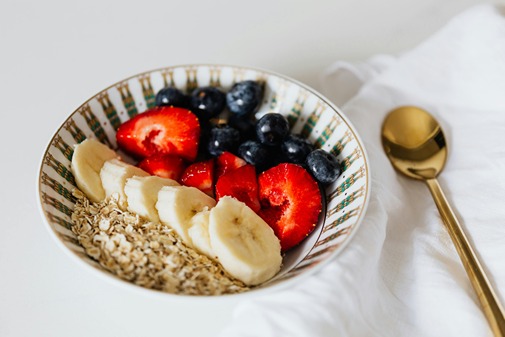Karolina Kaboompics/pexels image
Fiber is not just essential for digestion; it plays a critical role in maintaining heart health by lowering cholesterol levels and reducing the risk of cardiovascular disease. This article explores why fiber is crucial for your heart and provides practical tips on incorporating more fiber into your daily diet
Fiber and Cholesterol
- Fiber, especially soluble fiber found in oats, beans, and fruits, helps lower LDL (bad) cholesterol levels.
- Lowering LDL cholesterol reduces the risk of heart disease.
Heart Health Benefits
- Long-term studies show that individuals with a high-fiber diet have a significantly lower risk of developing cardiovascular diseases like heart attacks and strokes.
- Fiber also helps regulate blood pressure, another key factor in heart health.
Incorporating Fiber into Your Diet
- Simple Swaps: Replace refined grains with whole grains. For example, swap white bread with whole grain bread.
- Adding Legumes: Incorporate legumes like lentils and chickpeas into soups, salads, and main dishes for an extra fiber boost.
Interesting Fact :
- People who consume high-fiber diets are not only protecting their heart but also enhancing their overall gut health and reducing the risk of chronic diseases.
| Traditional Food | Fiber-Rich Alternative |
|---|---|
| White bread | Whole grain bread |
| Regular pasta | Whole wheat pasta |
| Potato chips | Air-popped popcorn |
| Sugary cereal | High-fiber bran cereal |
| White rice | Brown rice or quinoa |
Conclusion
Incorporating fiber into your diet is a simple yet powerful way to protect your heart and overall health. By making easy swaps and adding fiber-rich foods like fruits, vegetables, and whole grains, you can lower cholesterol, improve digestion, and reduce your risk of heart disease. Start today and make fiber a cornerstone of your heart-healthy lifestyle!
Similar Articles :
- The Importance and Benefits of Dietary Fiber
- Best 15 High Fiber Foods You Should Eat
- How many Types of Dietary Fiber ? and Their Health Benefits
- How Much Fiber Do You Need and Where Can You Find It?
- When Should You Consider Fiber Supplements and How to Use Them Safely?
- How Does Fiber Help with Weight Management and Metabolism?
Similar FAQs
Why is fiber important for health?
Fiber is crucial for digestive health, regulating blood sugar levels, and supporting heart health.
How does fiber reduce the risk of heart disease?
Fiber lowers cholesterol levels, improves blood pressure, and reduces inflammation, all of which lower the risk of heart disease.
What is the importance of fiber in digestion?
Fiber promotes regular bowel movements, prevents constipation, and supports a healthy gut microbiome.
Does fiber reduce the risk of heart disease?
Yes, fiber-rich diets are associated with reduced risk of heart disease due to their cholesterol-lowering and anti-inflammatory effects.
What does a high-fiber foods chart for constipation typically include?
A high-fiber foods chart for constipation includes prunes, bran cereals, beans, and vegetables like broccoli and spinach.
What is fiber in the human body and why is it important?
Fiber is the indigestible part of plant foods that aids digestion, promotes bowel regularity, and supports overall gut health.
What are the top 10 fiber foods that promote digestive health?
Top fiber foods such as lentils, black beans, raspberries, oats, and almonds help maintain healthy digestion.
How can you increase fiber intake without experiencing gas?
Increase fiber intake gradually, drink plenty of water, and choose soluble fiber sources like oats and bananas to minimize gas and bloating.

